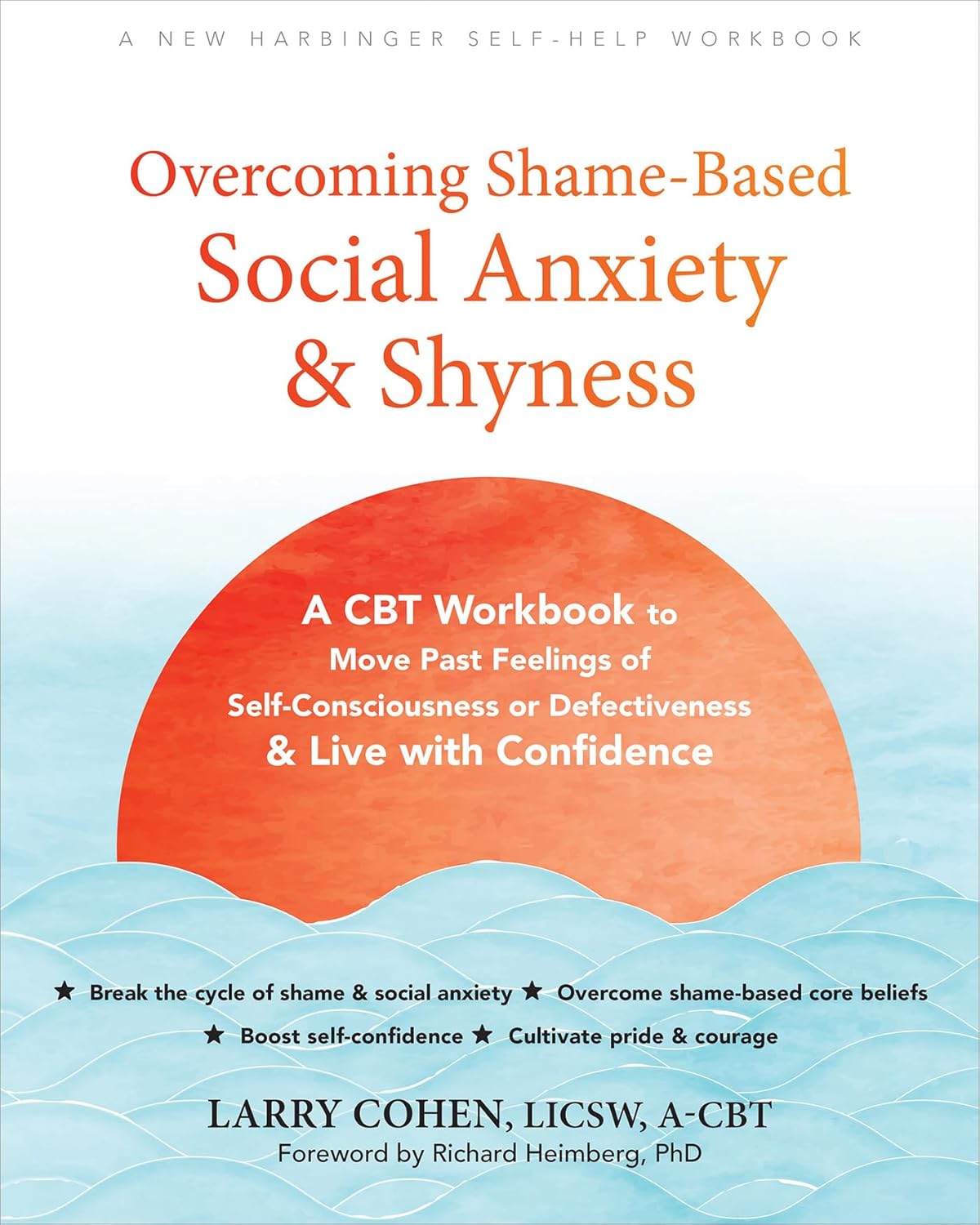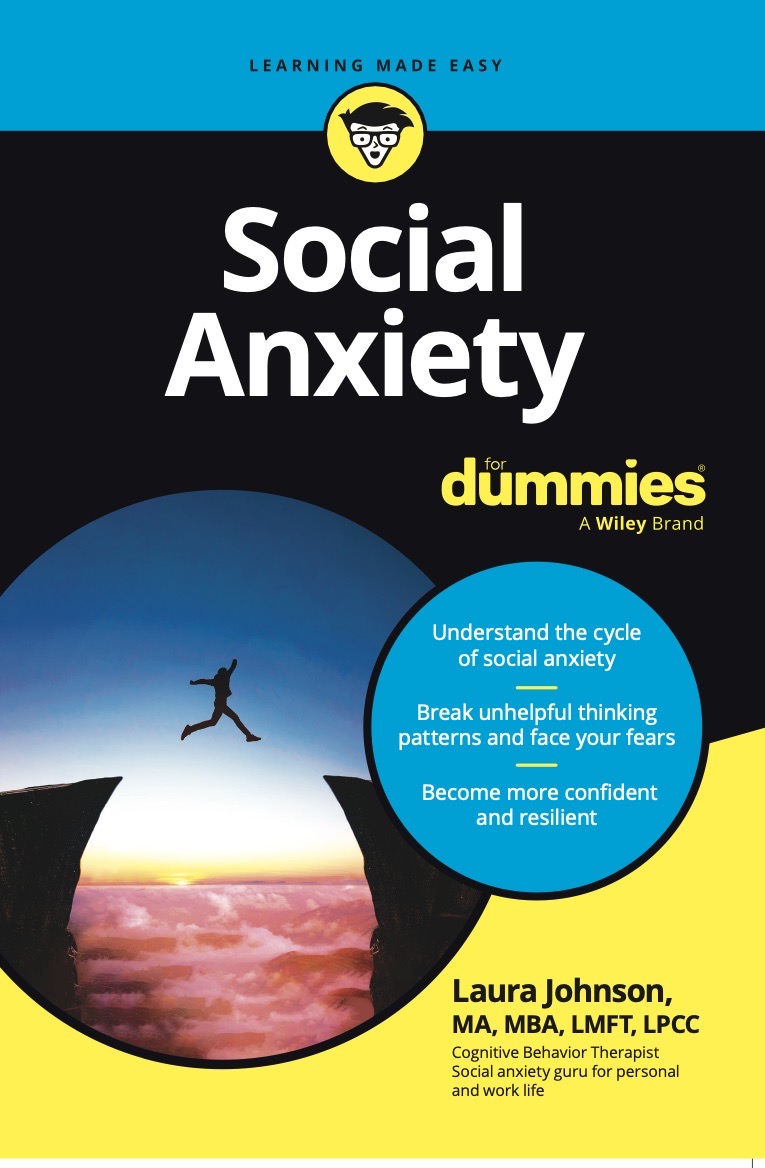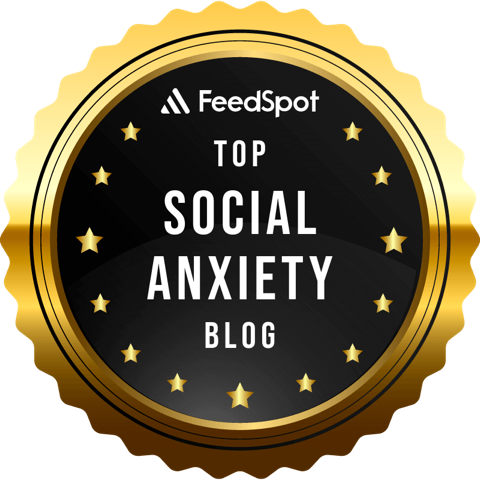Many professionals, managers and executives with social anxiety hesitate to use the term “social anxiety” because they are high achievers and they feel shame associated with lacking confidence at work. Many times, they come in using the words “stress and anxiety” generically. However, when I probe on why they are anxious, it often comes back to worrying about what others think of them.
Social anxiety disorder’s central worry is about being judged. This leads to a belief that people are watching, judging and evaluating you, and that you must be in performance mode all the time. Imposter syndrome can develop if your inner self does not match your external face to the world. When the fear of judgment becomes too extreme, it may impact how you perceive yourself at work.
Profiles of Professionals with Social Anxiety at Work*

Paul was a Senior Finance Manager at a biotech company. His social anxiety was the most intense when he was presenting earnings results to outside investors. This caused a lot of anxiety because investors were aggressive and often demanded more details. Paul had trouble saying “I’ll get back to you on that.” He felt he had to know the answers right then. He worried others would notice his jaw clenching and his shaky voice.
Jane was the Director of Public Relations at a high tech company. In Public Relations, being confident and social are key to the job. Jane worried people would notice her shortcomings. In reality, she always got excellent work reviews, and others commented positively about her, according to her boss. She felt like an imposter because she had a job in public relations yet did not feel confident. She worried excessively about people thinking she was not competent in her job.
Harry was the Founder of a start-up company which had grown to over 100 employees. He had always experienced social anxiety and avoidance for as long as he could remember. He was smart and driven, so he could mask his social anxiety. However, when Harry had to go to any work events or meetings, he would go for a little bit, act confident and leave early. He worried about being “missing in action,” but his avoidance only increased as a coping mechanism.
* Names and details have been changed for confidentiality.
Types of Social Anxiety at Work
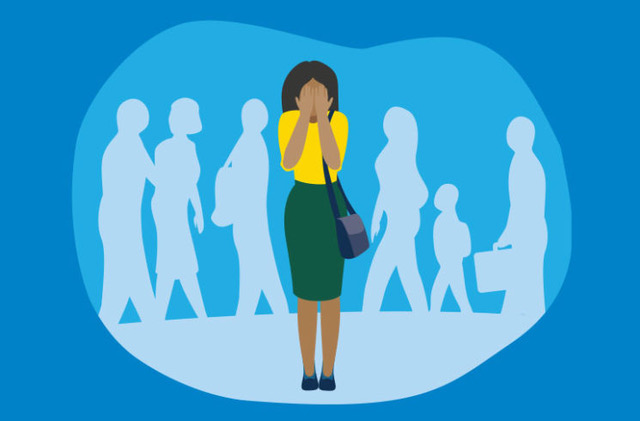
Below are common types of social anxiety at work that can impair your belief in yourself and even affect your performance if it becomes a self-fulfilling prophecy.
Perfectionism related to saying the right thing, worrying about what others think of you and impressing others in your workplace.
Imposter syndrome because, for example, you can interact with people all day but you ruminate excessively and you may think you do not really deserve your job.
Performance anxiety due to excessive fear of judgment which can often create a self- fulfilling prophecy.
Low self-confidence or self doubt, especially when you are expected to be totally confident in your role.
Public speaking and making presentations at work, then imagining that others think you do not really know what you are talking about.
Social interaction anxiety at work meetings, networking events, work parties, corporate retreats, business lunches and other situations.
Interacting with authority figures because they have an evaluative role and can affect your job security at your company.
Managing staff and cross-functional teams because you may think they do not see you as a leader and may be talking about you behind your back.
Cognitive-Behavioral Therapy (CBT) for Social Anxiety at Work
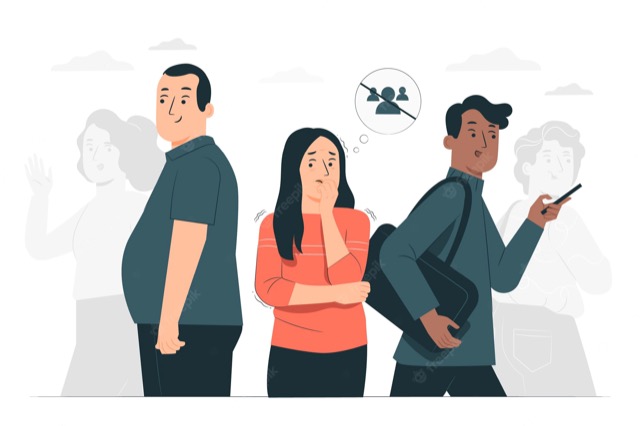
Cognitive-behavioral therapy (CBT) is goal-oriented and practical. CBT for social anxiety at work typically includes the following elements:
Education: You will learn about the cognitive, physical, and behavioral components of social anxiety, fear of judgment, excessive worry, and the difference between helpful and unhelpful strategies you may be using at work.
Self-Monitoring: You will track the details of work situations related to social anxiety to identify your patterns and guide the CBT plan. If you work with a therapist, you may be asked to track the triggers, thoughts, emotions and behaviors, as well as the frequency, intensity, and duration of anxiety and worry.
Cognitive Strategies: You will identify and change the thinking patterns that are maintaining your social anxiety at work, and learn to evaluate yourself more realistically and decrease your use of unhelpful strategies. Some core beliefs about social anxiety at work may include: “I am incompetent at work,” “people are always judging me,” and “I must always perform at a high level or I may get fired.”
Behavioral Strategies: For long-term change, you’ll need to test the beliefs you have about your actual performance in the workplace and how your core beliefs maintain social anxiety. In a planned and gradual manner, you will start confronting your workplace triggers related to your fear of others judging you.
Written by,
Laura L.C. Johnson, MA, MBA, LMFT, LPCC
Certified Cognitive Behavior Therapist
Advanced Certified Schema Therapist
National Social Anxiety Center, Silicon Valley / San Jose






